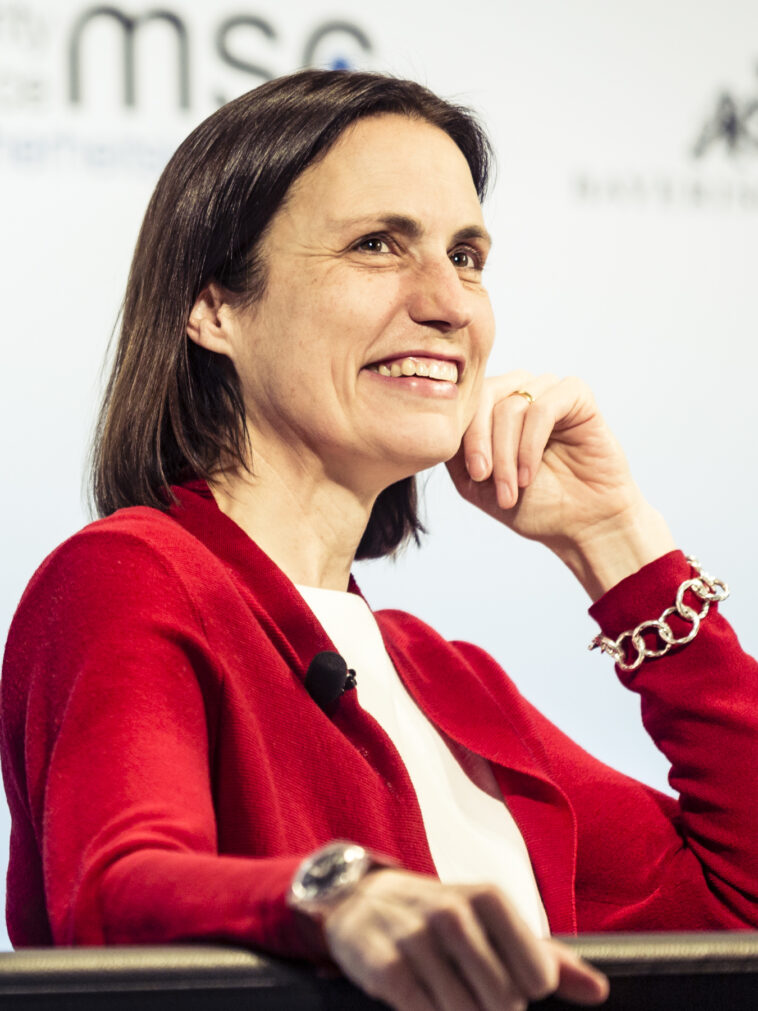Fiona Hill, who has proudly held the position of Durham University’s chancellor since 2023, is best known for her role at the White House and Brookings Institution. Raised in Bishop Auckland, a small industrial town not far from Durham, her journey began with an uncommon ambition and a commitment to education. Her leap from St. Andrews University in Scotland to the United States was inspired by her father, a miner turned hospital porter, who wanted his daughter to seek greater opportunities beyond their humble origins.
In the United States, Ms. Hill reached unprecedented heights in terms of her professional pursuits. Her remarkable journey included positions at Harvard and the Brookings Institution and extended to the heart of politics in the White House, suggesting the impressive breadth of her expertise. She used her increasing visibility to assert her stances on several policy matters.
While working under the Trump administration during the 2019 impeachment proceedings, she demonstrated the sensibility to denounce the administration’s pressure on Ukraine to investigate some domestic matters. This step indeed fortified her reputation as a fearless and confident policy analyst with a distinct perspective, making her widely recognized in her field.
Though residing in the United States, a substantial part of Ms. Hill remains closely linked with her English roots. Her acceptance of the largely ceremonial position as Durham University’s chancellor underlines her affection for her homeland. She never forgets her father’s advice about seeking opportunities elsewhere but continues to nurture her connection to the northeast of England.
As of today, she lives with her husband and college-aged daughter in suburban Washington and maintains a strong connection with Durham, where she spends about six weeks every year. Her responsibilities as the university’s chancellor include overseeing ceremonies and receiving briefings on the university’s finances. In addition to her work, she ensures she visits her mother in a nursing home in Bishop Auckland.
As much as she was an astute analyst during her time in academia and the White House, Ms. Hill continues to have a keen eye for the world’s dynamics. Be it the rise of populism, the evolving scenario of higher education in Britain and the US, or the challenges posed by certain international figures, Hill’s insights delve into a broad range of topics.
She recently made news when the British government commissioned her to co-author a strategic review of defense policy, in light of emerging threats from foreign entities. Being a seasoned analyst, she’s directed attention towards the possible implications of Trump’s changes in tone towards Vladimir V. Putin.
Despite her reservations about the practical impact of changing diplomatic tones, Hill argues convincingly for the need to reorient Britain’s defense policy amid increasing threats at home and abroad. She emphasizes the importance of investing in both nuclear and conventional forces, proposing a holistic approach that encompasses various sectors of British society.
She regards the state of higher education as a critical link in this chain of defense readiness. Believing that British universities are financially under-resourced and inadequately prepared for technological revolutions impacting warfare and work, she advocates for a period of deep introspection and re-evaluation within these institutions.
Her concerns regarding the viability of the skills acquired by graduates in the face of rapid technological advancements further underline this view. Ms. Hill’s enduring focus on higher education is seen as integral to fostering resilience against emerging societal and economic threats in the UK.
Durham University, a historic institution established in 1832, and other venerable British universities need to adapt to the changing landscape. Hill draws parallels between these institutions and other legacies of the Industrial Revolution, such as the now-idle coal mines that surround Durham, reminding us that great powers can rise and fall.
Reflecting on regional and global shifts, Hill analyzes how areas like northeastern England, once technological hubs, have become forgotten. This realization motivates her ongoing investigation into the factors contributing to the rise and fall of powerful entities, both macro and micro.
Despite all the turbulence, Ms. Hill remains hopeful and retains an optimistic outlook. She rightly points out that populism offers deceivingly simple solutions to complex problems and emphasizes the need to address these issues carefully and systematically.
She firmly believes that Britain, despite the setback of Brexit, possesses vast human potential and is held together by strong traditions. Encouragingly, Ms. Hill sees signs of recovery and expressed optimism for the future of Britain, likening the Brexit debacle to hitting rock bottom, from which the only way forward is upward.
Her dispassionate analysis of global politics and profound understanding of societal shifts demonstrate her unique perspective. Whether critiquing the implications of populism or shedding light on the challenges facing higher education, Ms. Hill remains a respected figure, methodically examining the world’s intricate political landscape.

